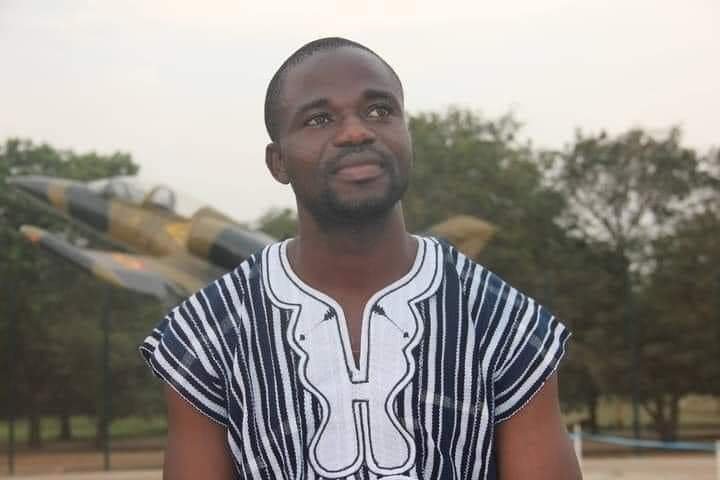News
Manasseh Azure reacts to President’s response to Martin Amidu

He writes
READING THE PRESIDENT’S RESPONSE CRITICALLY
I have just read the detailed response of the Presidency to Martin Amidu’s resignation letter and his (amidu’s) accusation of interference.
My first impression is the measured tone of the response to the strongly-worded letter from Amidu.
The president has denied ever interfering or asking Amidu to shelve the Agyapa Royalties report so that he (the president) would deal with the matter. It is Amidu’s word against the president’s word. And we may not know who is telling the truth apart from deciding to believe who we think will more likely be truthful on this matter.
What makes Amidu look very terrible in the president’s response is the detailed explanation of how Martin Amidu did not recruit even though he was given the clearance to do so.
Another detailed explanation that makes Martin Amidu look really terrible in the eyes of those who read the president’s response is how budgetary allocations were made available to him, but he failed to spend.
I don’t know what Martin Amidu has to say about those two main issues in the president’s response, but if you read the concluding part of the president’s response about the office space for the Office of the Special Prosecutor, you would understand why Martin Amidu could not have recruited or spent the money allocated to his office.
According to the response from the presidency, the search for a befitting office space started and concluded between September 2019 and September 2020. That problem was resolved about two months ago.
The three-bedroom office could not have contained the staff if Martin Amidu had recruited.
And if he didn’t recruit there would not be the need to spend. So if Martin Amidu can be blamed legitimately for not recruiting or spending, then that should be after two months ago.
It’s like giving a headmaster an office and enough money to admit students without first providing classrooms.
Martin Amidu should explain why he rejected the keys to his new office that was dispatched to him in an envelope. But as we await that explanation, it is important to ask whether that is the standard procedure for handing over a public building to an office such as the Office of the Special Prosecutor.
Should there not have been a more detailed process that gives an inventory of what was being handed to the OSP? Apart from the key, should there not be a list of facilities, the cost and other important considerations for the sake of accountability?
If Martin Amidu does not heed the advice of a delegation of eminent people who might be sent to him to call for a cease fire, we are likely to get a response from him.
Reading the president’s response, however, has given me a new perspective on the matter. The setting up of such an important office demanded more than just a law and a serious anti-corruption crusader.
It might not have been the duty of the president or the government, but more effort should have gone into making that office operational. Even if it meant hiring international consultants well-lettered in matters of security and systems needed to make such an important office effective, it should have been explored.
The OSP, like the BNI and EOCO should not just be put into any facility at all. What do they need in their interrogation rooms? What systems are needed to check those who would use the office to make money from the rich and corrupt targets of investigations?
Having said that, the fight against corruption will not go anywhere until we get a leader who is willing to fight it.
And where was the board of the OSP in all of this?
The Auditor General has been forced to go home because he was seriously fighting corruption and had taken the fight to the senior minister. If Martin Amidu is out because it’s his fault, what about Daniel Domelevo, the Auditor General?
As I type this, the Attorney General is sitting on a docket prepared by the Financial Forensic Unit of the Ghana Police Service which has concrete evidence of how over 200 million cedis was paid to Zoomlion and its subsidiaries but the public officials who paid the money cannot give evidence of work done. Not even one official could say he or she saw the work being executed but they paid.
This is just one of the many cases, which the Presidency is aware of, and we do not need a special prosecutor to punish these acts of corruption and deter others.
Manasseh Azure Awuni, November 18, 2020.
News
Man sentenced to 25 years for robbery at Manso Akwasiso

A 30-year-old man has been sentenced to 25 years imprisonment with hard labour by the Bekwai Circuit Court for his role in a 2022 robbery at a mining site at Manso Akwasiso in the Ashanti South Region.
The convict, Dominic Ofori, also known as Fanta, was arrested on 16th February 2026 after years on the run. He pleaded guilty before the Bekwai Circuit Court to robbery contrary to Section 149 of the Criminal Offences Act, 1960 Act 29, and was accordingly sentenced to 25 years imprisonment with hard labour.
On March 20, 2022, the Manso Adubia District Police received intelligence that a group of armed men from Manso Abodom were planning to attack a mining site at Manso Akwasiso to rob the owner of gold concentrate. Acting on the information, police mounted a coordinated operation and laid an ambush at the site.
At about 5:30 pm the same day, four-armed men arrived at the site, fired indiscriminately, and robbed the miners of their gold concentrate. The police team on surveillance intervened, resulting in an exchange of gunfire.
Three of the suspects, Abu Abubakar, Musah Latif, and Gideon Takyi, sustained gunshot wounds and were pronounced dead on arrival at St Martins Catholic Hospital at Agroyesum. Dominic Ofori escaped at the time but was later arrested and put before the court.
The Ashanti South Regional Police Command has assured the public of its continued commitment to combating violent crimes and bringing offenders to justice.
News
Ashanti police arrest man for publishing false news on TikTok

The Ashanti Regional Police Command has arrested 45-year-old Isaac Boafo, also known as “Duabo King,” for allegedly publishing false news intended to cause fear and panic.
Police said the arrest follows a viral TikTok video in which Boafo claimed that four officers at the Central Police Station in Kumasi engaged in inappropriate conduct with commercial sex workers during night patrols in Asafo.
Officers from the Police Intelligence Directorate (Ashanti Region) apprehended Boafo after receiving intelligence about the video.
During questioning, he admitted to creating the video to attract views and engagement online, and acknowledged that he could not prove the allegations.
Boafo also admitted making comments about the President of the Republic for content purposes and could not defend those statements.
He has been formally charged and is in detention as investigations continue.
The Ashanti Regional Police have warned the public against publishing or sharing false information on social media, noting that such acts can cause fear, panic, and damage reputations.
They said anyone found engaging in similar conduct will face legal action.
By: Jacob Aggrey






